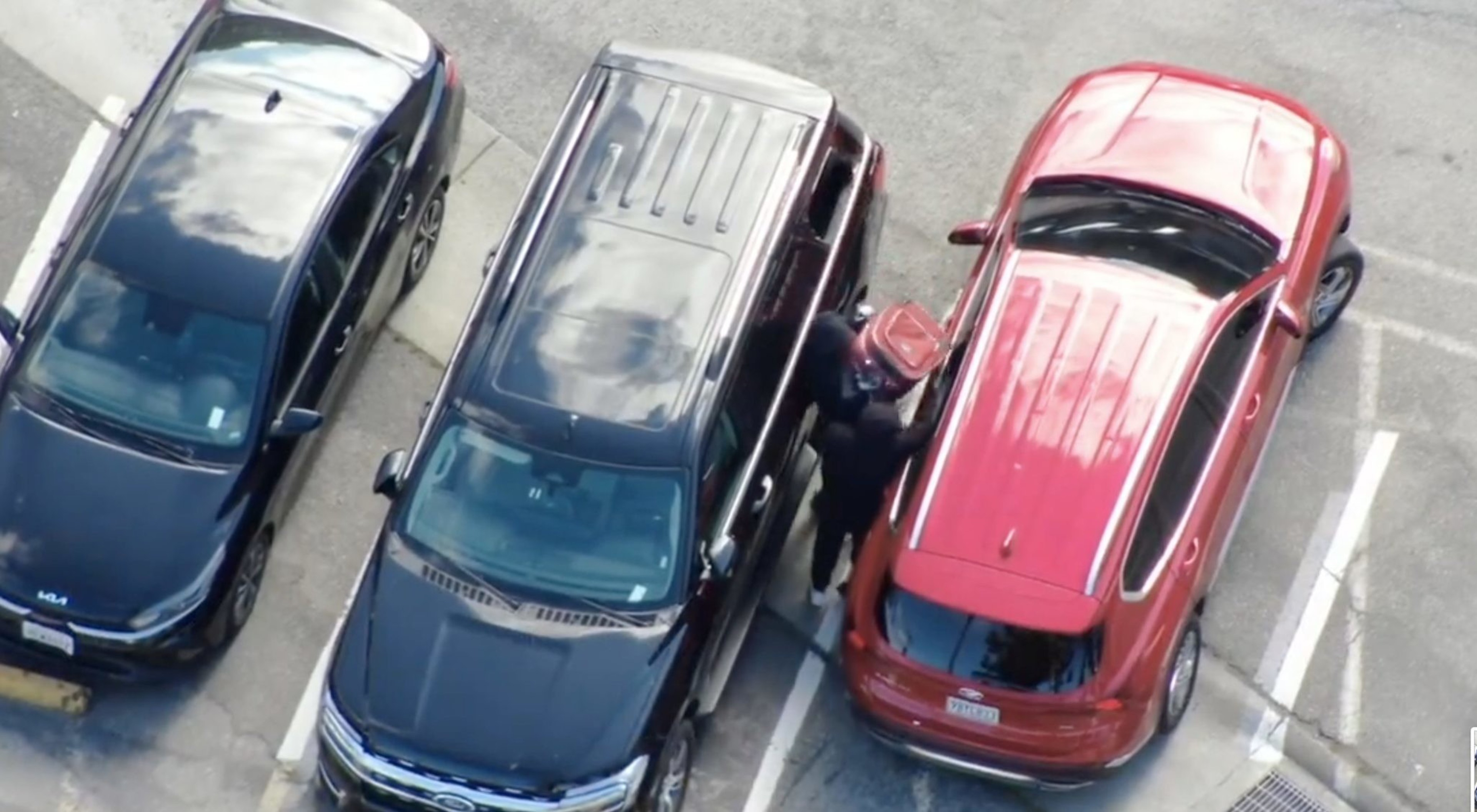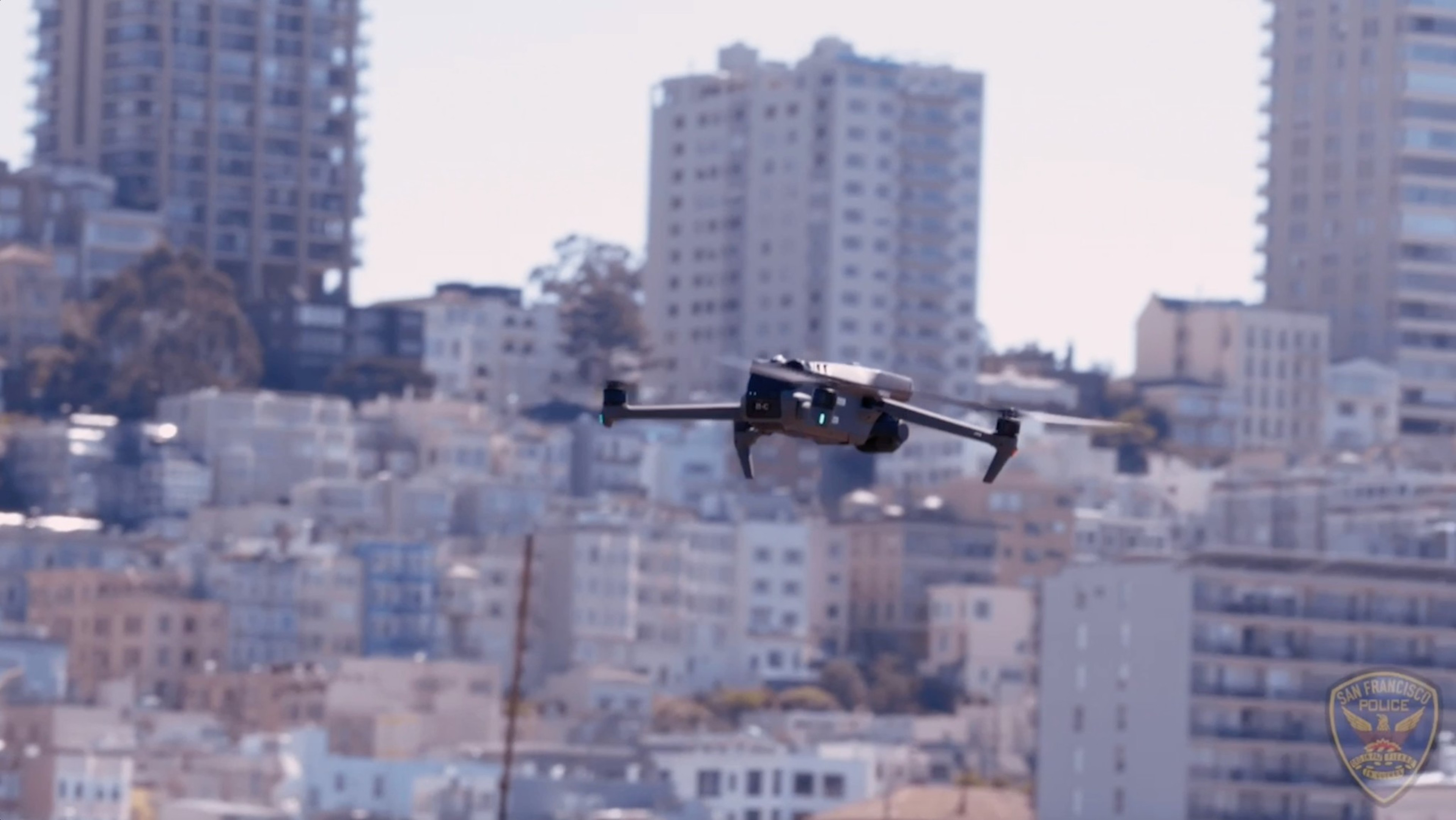San Francisco police have been using drones to catch car break-in suspects and investigate sideshows for months but internal emails show they knowingly broke the law by buying the crime-fighting tech.
Now the San Francisco Police Department is asking city leaders to approve the drones after it ignored warnings from within its ranks that it should have held off. Newly unearthed SFPD emails show the first call for caution came months ago from one of its own policy experts.
About a week before the March 5 election, the SFPD was planning what drones to buy if voters expanded police powers by passing Proposition E. But a department analyst noted that Prop. E alone did not give police authority to unilaterally add drones to its arsenal.
Asja Steeves, SFPD policy division manager, said that even if voters passed the law, it doesn’t excuse the department from abiding by Assembly Bill 481. Authored by then-Assemblyman David Chiu, the 2021 law requires police to get the blessing from city electeds before using new surveillance tools.
“Prop. E does not supersede state law,” Steeves wrote in a Feb. 28 email to department leaders obtained by the Electronic Frontier Foundation and shared with The Standard.

Another concern, which Steeves didn’t address, is that evidence gathered through unauthorized technology could give defense attorneys grounds to challenge cases — including those the SFPD highlighted to justify its drone use.
Steeves also told her colleagues that rushing to buy drones could put the SFPD in the middle of a political controversy.
“If we want to stay out of the political fray and buy drones in order to use them in efficient ways that help the department,” Steeves advised, “we may want to wait until after the election to start the AB 481 approval process.”
The top brass didn’t wait.
Prop. E passed, drones were bought, and the SFPD began openly touting its new gadgets. In a press conference (opens in new tab) last month, Mayor London Breed and SFPD Chief Bill Scott cited the arrests of suspected car burglars as proof that voters were right to give police more leeway.
But civil liberties advocates say the SFPD is proving Steeves right, too, by now scrambling to get into compliance with state law through a proposal (opens in new tab) from Supervisor Matt Dorsey, a former police communications boss, that would retroactively legalize the department’s drones.
Matt Guariglia, a policy analyst with the Electronic Frontier Foundation, said the department is trying to quietly correct a mistake it knew full well it was making.
“This email from Feb. 28 is kind of a smoking gun,” he said, referring to Steeves’ warning. “Their own policy person told them ahead of time to pump the brakes on the drones because they’d need prior approval, yet they immediately started buying these drones despite that warning. Everything they did afterwards was in violation of state law.”
When asked for comment on Steeves’ warning as well as outside criticism about the department violating state law, SFPD offered a narrow response.
“This internal email was sent during the early stages of our drone procurement process and does not represent the department’s position and did not then,” officer Robert Rueca, an SFPD spokesperson, told The Standard. “Also, that email was written without engaging with the city attorney’s office and did not reflect input from that office.”
SFPD leaned heavily on the city attorney’s language when it made its case for Dorsey’s proposal (opens in new tab) at the Sept. 9 Rules Committee.
The meeting kicked off last week with Acting Lt. Eric Batchelder rattling off the ways a drone’s-eye-view has helped police. He said the department has six drones that were used in 65 missions — 18 of which led to arrests.
Supervisor Shamann Walton then brought up some of the same concerns as the Electronic Frontier Foundation, but struggled to get a straight answer.
“So right now, the drones are in use — are we operating in violation of state law?” Walton asked.
Deputy City Attorney Bradley Russi affirmed that state law requires city supervisors to sign off on drone use, but argued that when voters passed Prop. E “they stood in the shoes of the board for approval — at least for the first year.”
Yet the department is still seeking retroactive approval, which must pass through the Rules Committee in a continued discussion Monday before going to the full board for a vote.
Until then, according to state law, it can’t legally use drones — but SFPD apparently can’t be penalized for that either. AB 481 has no enforcement mechanism beyond admonishment from state authorities or pressure from the public.
John Lindsay-Poland, a writer who advocates for demilitarizing the police through American Friends Service Committee (opens in new tab), said SFPD appears to be the only agency in California to use drones without prior approval since AB 481 became law.
That’s more than just a black mark on its reputation, he told supervisors at last week’s hearing.
“A law enforcement agency violating the law sets a bad example for the community,” Lindsay-Poland said, “and puts at legal risk the prosecutions in which drones were used.”
